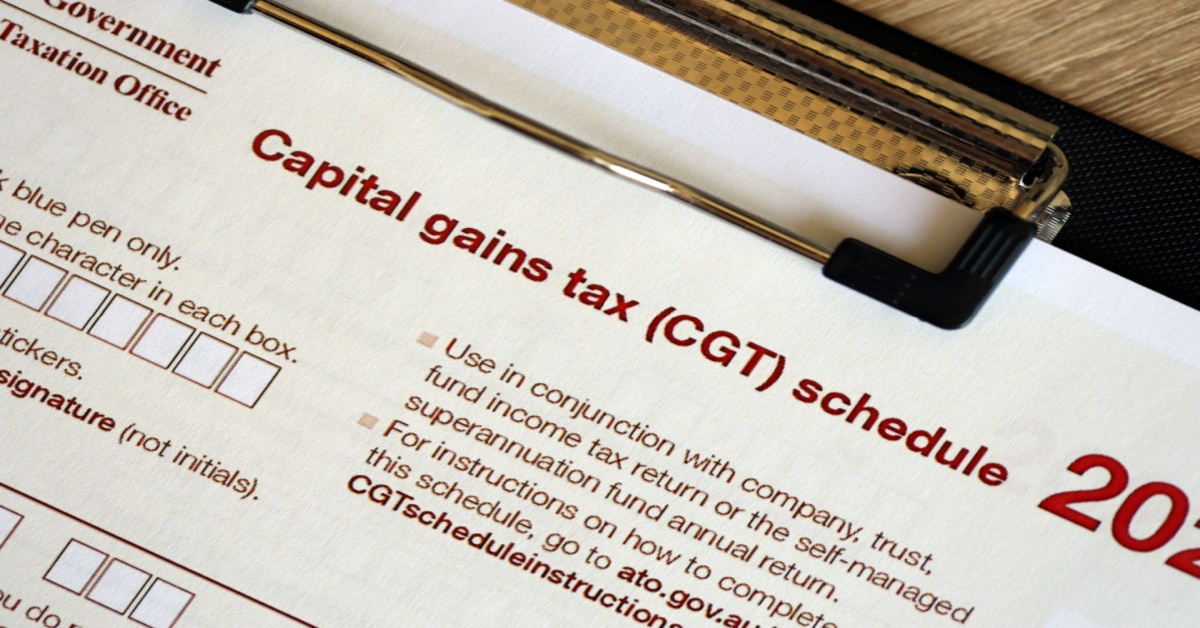Table of Contents
Quality Service Guarantee Or Painting Free

Get a rental agreement with doorstep delivery

Find the BEST deals and get unbelievable DISCOUNTS directly from builders!

5-Star rated painters, premium paints and services at the BEST PRICES!
Loved what you read? Share it with others!

Capital Gain Account Scheme (CGAS): Features, Benefits, and How to Open an Account in 2025
Table of Contents
Capital Gain Account Scheme (CGAS)is a government scheme in India introduced in 1988 to help real estate investors reduce their tax liability on capital gains from property sales. Under this scheme, investors can deposit their capital gains into a special account and claim tax exemptions on the deposited amount. The funds deposited can be utilised within a specified timeframe to purchase or construct a new property. The CGAS allows Indian real estate investors to maximise their profits while minimising tax obligations.
This blog post will provide an overview of the CGAS, including its definition, purpose, eligibility criteria, deposit limits, tax implications, and advantages compared to other investment options for capital gains.
What is the Capital Gain Account Scheme?
Definition and Purpose of the Scheme: The Capital Gain Account Scheme (CGAS) is a scheme introduced by the Indian government to provide tax benefits to individuals on the capital gains they earn from the sale of assets such as property, stocks, and mutual funds. Under this scheme, individuals can open an account with a designated bank and deposit the capital gains earned from the sale of assets into that account.
Quality Service Guarantee Or Painting Free

Get a rental agreement with doorstep delivery

Find the BEST deals and get unbelievable DISCOUNTS directly from builders!

5-Star rated painters, premium paints and services at the BEST PRICES!
This amount can then be used for specific purposes, such as purchasing or constructing a new property or investing in bonds or stocks. The scheme offers various benefits to taxpayers, such as reducing their tax liability and providing a safe investment option for their capital gains.
Eligibility Criteria for Opening a CGAS Account
To be eligible to open a CGAS account, an individual must have earned long-term capital gains from the sale of assets such as property, stocks, or mutual funds. The scheme is available to both residents and non-residents of India. However, non-residents can only open a Non-Resident Capital Gain Account (NRCGAS) instead of a CGAS account. To open a CGAS account, an individual must provide proof of the capital gains earned and the sale of the asset.
Comparison with Other Investment Options for Capital Gains
CGAS offers several advantages over other investment options available to taxpayers. Unlike other investment options, such as bonds or mutual funds, where the capital gains are subject to tax, the gains deposited into a CGAS account are tax-free. Moreover, the scheme allows individuals to deposit the entire amount of capital gains earned into the account, which can then be used for specific purposes such as purchasing a new property or investing in bonds or stocks. Additionally, the scheme provides a safe investment option for capital gains, unlike other investment options which may carry a higher level of risk.
What documents are required to open an account under the Capital Gains Account Scheme?
Opening an account under the Capital Gain Account Scheme (CGAS) requires a few essential documents. This scheme is specifically designed for individuals who wish to park their capital gains before utilising them for eligible investments. To ensure a smooth application process, make sure you have the following documents ready:
- PAN Card: Possessing a valid PAN card is mandatory for identification and taxation under the Capital Gains Account Scheme. It is one of the most important documents for tracking capital gains.
- Proof of Address: You will need to submit proof of your residential address. To verify your identity, a recent utility bill, passport, or bank statement is acceptable.
- Passport-sized Photograph: A recent passport-sized photograph is required as part of the application process, as per the requirements for opening the account.
- Capital Gains Proof: You will also need to provide proof of the capital gains you've made. This could be a sale deed, capital gains tax return, or transaction statements showing the details of the gains.
The capital gain account interest rate and SBI capital gain account interest rate can vary, so be sure to check with your bank for the latest figures.
What are the Key Provisions of the Capital Gain Account Scheme 1988?
The Capital Gain Account Scheme 1988 allows taxpayers to park their capital gains in specific accounts to claim exemptions while planning to reinvest in eligible assets like property or bonds.
What Are the Provisions Related to Deposit Limits and Withdrawals in CGAS?
Under the Capital Gain Account Scheme 1988, there are specific provisions related to deposit limits and withdrawals. The scheme allows individuals to deposit the entire amount of capital gains earned into the account. However, there is a limit on the amount that can be withdrawn from the account. The limit for withdrawals from the account is 60% of the total balance in the account. Additionally, the scheme requires individuals to maintain a minimum balance of INR 50,000 in the account at all times.
What Are the Tax Implications and Exemptions for CGAS Account Holders?
CGAS account holders are eligible for various tax exemptions and benefits. The gains deposited into a CGAS account are not subject to tax, and individuals can claim a tax exemption for the amount deposited into the account.
The scheme also allows individuals to use the funds deposited in the account for specific purposes such as purchasing or constructing a new property or investing in bonds or stocks, which can also provide tax benefits.
What Are the Differences Between CGAS and Non-Resident Ordinary (NRO) Accounts?
Non-resident ordinary (NRO) accounts are similar to CGAS accounts, but the two have some key differences. NRO accounts are designed for non-resident Indians who earn income in India. In contrast, CGAS accounts are designed for individuals who earn long-term capital gains from selling assets such as property, stocks, or mutual funds.
Additionally, the tax implications and benefits of the two accounts are different. While gains deposited into a CGAS account are not subject to tax, gains earned in an NRO account are subject to tax.
What is the Time Limit for Deposit in the Capital Gain Account Scheme?
Under the Capital Gain Account Scheme, specific timelines exist for depositing capital gains into the account. Individuals must deposit the capital gains within a specified period, failing which they may lose the tax benefits offered by the scheme. The timelines for depositing the capital gains vary depending on the purpose for which the funds will be used.
For instance, if an individual intends to use the funds to purchase a new property, the capital gains must be deposited into the account before filing the income tax return for that financial year. Similarly, suppose an individual intends to use the funds to construct a new property. In that case, the capital gains must be deposited into the account before the deadline for filing the income tax return for the financial year in which the property is constructed.
What Are the Consequences of Missing the Deposit Deadlines in CGAS?
If an individual fails to deposit the capital gains into the account within the specified timelines, they may lose the tax benefits offered by the scheme. The gains will then be subject to tax as per the regular income tax rates. Additionally, the individual may also have to pay a penalty for not depositing the gains within the stipulated period.
How Can You Extend the Deposit Time Limit Under Certain Circumstances?
In some cases, individuals may be unable to deposit the capital gains within the specified period due to unforeseen circumstances such as illness or natural calamities. In such cases, they can apply for an extension of the deposit time limit by applying to the designated bank. The bank may grant an extension of up to one year from the end of the financial year in which the capital gains were earned.
How much should be deposited in Capital Gain Account Scheme?
When considering how much should be deposited in a capital gain account scheme, it's important to note that there is no specific minimum amount required by law (as defined by sections 54F and 54GB). However, the amount deposited must correspond to the capital gain amount you wish to use for exemption under the applicable tax provisions. For instance, if you have made a capital gain of ₹10 lakhs, that is the amount you should deposit into the account to ensure you meet the requirements for claiming tax benefits.
What Types of Deposits Are Available Under the Capital Gains Account Scheme?
The Capital Gains Account Scheme (CGAS) offers varying features such as interest rates and withdrawal options, catering to the diverse needs and preferences of investors. Let’s explore the two main types of deposits available under the CGAS, namely Type A and Type B deposits.
| Account Type | Description | Capital Gain Account Interest Rate | Withdrawal |
| Type A | Savings deposit account | Similar to a regular savings bank account | Similar to savings bank account interest rate |
| Type B | Term deposit account | Similar to a fixed deposit account | Higher than savings bank account interest rate |
What is the process for withdrawing funds from the Capital Gains Account Scheme?
Moving money away from the Capital Gain Account Scheme (CGAS) entails following a legally mandated series of procedures to avoid penalties. Below are the procedures and necessary forms for withdrawing funds.
Form C – First-Time Withdrawal
Form C enables first-time withdrawals from Capital Gains Accounts. The form is primarily used when an individual is aiming for a first-time withdrawal. The money that is withdrawn from the account must be used within 60 days. This means that the amount withdrawn cannot be re-deposited into the Capital Gains account immediately after the withdrawal. In the case a second withdrawal is needed, Form D must be further filled out.
Form D – Subsequent Withdrawals
For subsequent withdrawals, Form D must be submitted. When applying, you will need to provide details regarding the utilisation of previously withdrawn funds. While withdrawals from a Type A savings account are unrestricted, premature withdrawal from Type B accounts is allowed only after transferring the funds to a Type A account. However, prematurely withdrawing while on Type B may incur some penalty. Any sum withdrawn must be used for certain investments within a period of 60 days, after which unused funds can be deposited back into any Type A account immediately.
Form E – Nomination and Changes
For individuals opening a Capital Gains Account under this scheme, Form E allows you to nominate a beneficiary to inherit the funds upon death. Additionally, if you wish to change the nominee, you can use Form F. The account is only available to individuals and Hindu Undivided Families (HUF); no loans can be taken against it.
Form F – Closing the Account
To close a Capital Gains Account, you need to seek approval from the Income Tax Officer under whose jurisdiction the account is registered. To avail of benefits under Sections 54, 54EC, and 54F, it is essential to ensure that the money in the account is utilised within 2 years from the sale of the property. Failing to do so will result in the unutilised amount being subject to capital gains tax in the fiscal year the deadline ends.
Restrictions and Penalties:
There are no restrictions on withdrawals from a Type A savings account. However, premature withdrawal is possible for a Type B account, but it can only occur after transferring the funds to a Type A account and may incur penalties.
Any funds withdrawn must be used for specified investments within 60 days, and failure to do so could result in tax liabilities. The associated FD capital gains account scheme interest rate applies for a Capital Gain FD (Fixed Deposit).
Other Consideration:
- It is essential to deposit the amount corresponding to the capital gains you earned, which should be done per the rules laid out in the scheme.
- You should also review the CGAS interest rate and the capital gain account scheme interest rate to determine the amount of interest you will earn on your deposits.
If you need further assistance in managing your interest in a capital gain account or other aspects of the Capital Gains Account Scheme, make sure to consult with a financial advisor or the relevant bank branch.
What Is the Interest Rate Under the Capital Gains Account Scheme?
The government determines the interest rate on the capital gain account scheme offered on the deposited capital gains and is subject to change from time to time. The current CGAS scheme interest rate is 7.15% per annum.
The interest rate is compounded quarterly and is credited to the account at the end of each quarter.
Note: Rates can vary slightly between institutions depending on the bank, so it's advisable to check with specific banks for current rates.
How Is Interest Calculated and Credited to CGAS Account Holders?
The interest on the deposited capital gains is calculated based on the balance in the account at the end of each quarter. The interest is calculated quarterly and is compounded quarterly. The interest earned on the deposited capital gains is tax-free and is credited to the account at the end of each quarter.
How Do CGAS Interest Rates Compare with Other Investment Options?
The interest rate offered on CGAS accounts is relatively higher than other investment options available to taxpayers, such as savings accounts or fixed deposits. However, the interest rate offered on CGAS accounts is lower than some other investment options such as equity mutual funds. Therefore, individuals should carefully consider their investment objectives and risk tolerance before investing in CGAS accounts.
What Are the Capital Gain Interest Rates for Different Banks?
The government sets the interest rate for the CGAS, which is presently 7.15% annually. At the moment, the annual interest rate on capital gains bonds is 5.25%. These bonds need a minimum investment of Rs. 20,000 and are a low-risk, tax-saving investment. They have a five-year lock-in period.
| Bank Name | Interest Rate (Approx.) |
| State Bank of India (SBI) | 3.00% - 7.10% (Savings/Term Deposit Rates) |
| Punjab National Bank (PNB) | 2.70% - 7.00% (Savings/Term Deposit Rates) |
| Canara Bank | 2.90% - 7.00% (Savings/Term Deposit Rates) |
| Bank of Baroda | 2.75% - 7.15% (Savings/Term Deposit Rates) |
| Union Bank of India | 2.75% - 7.00% (Savings/Term Deposit Rates) |
| IDBI Bank | 3.00% - 6.90% (Savings/Term Deposit Rates) |
| HDFC Bank | 3.00% - 7.10% (Savings/Term Deposit Rates) |
| ICICI Bank | 3.00% - 7.10% (Savings/Term Deposit Rates) |
| Axis Bank | 3.00% - 7.00% (Savings/Term Deposit Rates) |
Note: To get precise details about the Capital Gain Account Scheme, it's advisable to contact the respective banks or visit their official websites directly.
What Are the Benefits of Using the Capital Gain Deposit Scheme for Real Estate Investors?
The Capital Gain Deposit Scheme helps real estate investors save on taxes by deferring capital gains tax while allowing flexible deposit options for future property purchases.
How CGAS Can Help Reduce Tax Liability for Real Estate Investors?
Real estate investors can use the Capital Gain Account Scheme to reduce their tax liability on the gains earned from property sales. By depositing the capital gains into a CGAS account, they can claim a tax exemption for the amount deposited, thus reducing their taxable income. Additionally, they can use the funds deposited in the account to purchase or construct a new property, providing tax benefits.
How to Use CGAS Funds to Purchase or Construct a New Property?
Real estate investors can use the funds deposited in a CGAS account to purchase or construct a new property. To use the funds for this purpose, the capital gains must be deposited into the account before the deadline for filing the income tax return for the financial year in which the property is purchased or constructed. Additionally, the funds must be used within two years of depositing the capital gains into the account.
What Are the Advantages of CGAS Over Reinvestment in Bonds or Stocks?
- Lower risk: CGAS offers a relatively safe and secure option for investing capital gains. Bonds and stocks carry higher risks due to market fluctuations and economic conditions.
- Tax benefits: The scheme allows investors to defer capital gains tax by depositing the gains in a CGAS account instead of immediately reinvesting in bonds or stocks. This deferral can help investors minimise tax liability and optimise their overall tax planning strategy.
- Flexibility: CGAS offers flexibility in managing capital gains. Investors can choose when and how much to withdraw from the CGAS account, allowing them to align their cash flow needs with their investment objectives.
- Security: CGAS accounts are operated by authorised banks, ensuring a high level of security for the deposited funds.
- Preservation of gains: By depositing capital gains in a CGAS account, investors can preserve their gains without exposing them to market volatility. Bonds and stocks can be subject to fluctuations in value, which may affect the overall return on investment.
How can NoBroker help?
The Capital Gain Account Scheme is a useful tool for individuals looking to minimise their tax liability on capital gains earned from the sale of property. By depositing the gains into a CGAS account, individuals can claim a tax exemption for the amount deposited and use the funds to purchase or construct a new property. Additionally, the interest earned on the deposited capital gains is tax-free, making it a more attractive option for investors looking to earn a steady income.
NoBroker can assist individuals with opening, managing and investing in CGAS accounts, providing the necessary guidance and support to make informed investment decisions. With its user-friendly platform and knowledgeable team of experts, NoBroker is the ideal partner for individuals looking to invest their capital gains safely and securely.
Frequently Asked Questions
A1. The unutilised amount in the Capital Gain Account Scheme continues to earn interest until it's withdrawn for eligible purposes like property purchase or construction.
A2. The interest rate on Capital Gain Account Scheme (CGAS) is determined by the government and is currently set at 7.15% per annum.
A3. The PNB Capital Gain Account interest rate is determined by the bank's Card Rate, as per circulars issued by the Bank. There are no additional rates for senior citizens or staff members under this scheme.
A4. The current interest on capital gain account fixed deposits varies depending on the bank and the duration of the deposit. It's advisable to check with your bank for the most accurate information.
A5. The SBI Capital Gain Account offers an interest rate of 6.50% for personal banking.
Loved what you read? Share it with others!
Most Viewed Articles

Top 10 Property Selling Apps in India: Fast, Easy, and Efficient in 2026
January 30, 2025
58782+ views

What is TDS on Sale of Property? Rates, Procedures, and Filing Requirements
February 3, 2025
33241+ views

Agriculture Land Purchase Rules in Maharashtra: Documentation, Eligibility, Laws, and Regulations
March 28, 2025
30733+ views

Capital Gains Tax on Sale of Agricultural Land: Rules, Exemptions, and Savings in 2025
January 31, 2025
25270+ views

Agriculture Land Purchase Rules in Gujarat: Eligibility, Legal Criteria, and Regulations
March 28, 2025
24470+ views
Recent blogs in
Section 55 of the Income Tax Act: Capital Gains & Cost of Acquistion and Improvement
July 29, 2025 by Suju
Section 54B of the Income Tax Act: Eligibility Criteria, Calculations And Exemptions
July 29, 2025 by Jessica Solomon








 Full RM + FRM support
Full RM + FRM support
Join the conversation!